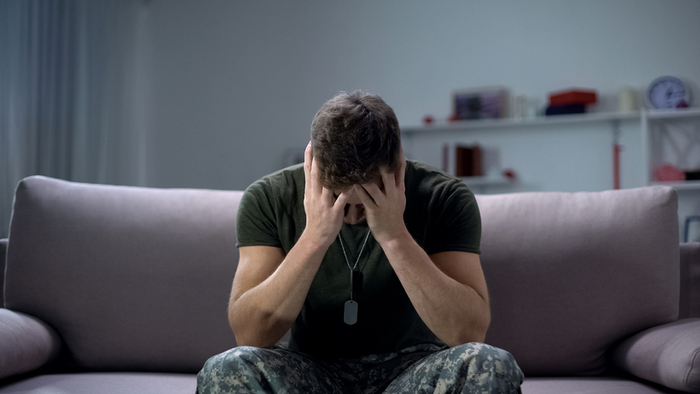- Calls to this hotline are currently being directed to Within Health, Fay or Eating Disorder Solutions
- Representatives are standing by 24/7 to help answer your questions
- All calls are confidential and HIPAA compliant
- There is no obligation or cost to call
- Eating Disorder Hope does not receive any commissions or fees dependent upon which provider you select
- Additional treatment providers are located on our directory or samhsa.gov
Can Depression Lead to an Eating Disorder?

Eating disorders are a mental health condition. Eating disorders can be difficult to recover from, especially if someone experiences another mental health condition at the same time. Some people deal with depression and an eating disorder. These conditions can feed into each other and are often linked.
What is Depression?
Depression is a mental illness that can cause significant impairment. Someone with depression may struggle to function in relationships or in educational or work settings. Depression is different than feeling sad sometimes. Signs and symptoms of depression are: [1]
- Agitation, irritability, or anger
- Withdrawing or isolating from friends or family
- Low energy or chronic fatigue
- Feeling hopeless, helpless, worthless, or guilty
- Loss of interest or pleasure in activities that used to be enjoyable
- Change in appetite, such as eating more or less than usual. This can lead to weight gain or loss
- Suicidal thoughts or behaviors
- Trouble concentrating
- Trouble falling or staying asleep or sleeping too much
These symptoms must last for at least two weeks in order for someone to be diagnosed with depression. Some of these symptoms, particularly changes in eating patterns, may overlap with eating disorder symptoms. However, these conditions are very different.
Is There a Link Between Depression and Eating Disorders?
There is a link between depression and eating disorders. [2] However, researchers and eating disorder professionals don’t fully understand why these two conditions are linked. [2]
Research shows that people with more severe depression are more likely to struggle with more severe eating disorder symptoms. [2] This is especially true for populations that are already at high risk for eating disorders, primarily female adolescents and young adults. [2]
Can Depression Lead to an Eating Disorder?
It’s impossible to say what causes an eating disorder. Research is able to show us what environmental, genetic, and psychological factors increase the risk of developing an eating disorder.
However, research shows that depression is one of the most common co-occurring mental health conditions that people with eating disorders experience. [2] Researchers believe that depression can feed into disordered eating if someone uses disordered eating behaviors as a way to cope with negative feelings. [2]
If someone has an eating disorder and depression, it’s important to receive treatment for both. Untreated depression can lead someone to relapse if they don’t have ways to cope with distressing feelings. [2]
It’s also important to consider the difference between disordered eating and a diagnosable eating disorder. Someone with depression may have disordered eating, such as eating too little due to loss of appetite.
This is different than someone who is depressed and eating too little as a way to cope with being sad. While depression and eating disorders can feed into one another, they are different.

What are Treatment Options for Depression & Eating Disorders?
There are treatment centers who treat co-occurring conditions. Co-occurring means someone has two conditions at the same time. If you are experiencing an eating disorder and depression, it’s important to treat both at the same time.
Treatment will depend on how severe the depression and eating disorder are. Treatment options include:
- Inpatient- Inpatient treatment typically refers to a hospital setting. This treatment option tends to be short-term. Someone with a co-occurring eating disorder and depression may need hospitalization if they aren’t safe without 24/7 medical supervision or care. For example, someone who is actively suicidal could benefit from medical supervision and intensive care.
- Residential- Residential treatment provides 24/7 care, but is less intensive than a hospital. Residential treatment is very structured and every aspect of the day is designed to be therapeutic in some way.
- Intensive outpatient- Intensive outpatient programs typically take place several hours per day, several days per week. Intensive outpatient treatment centers may be a good fit for you if you have a lot of social support and do not require 24/7 care in order to stay safe or continue making progress towards your recovery.
- Partial Hospitalization- A PHP involves individuals living at home while engaging in treatment that is, essentially, a full-time job. Individuals attend programming 5 days per week for 6 to 11 hours each day.
- Outpatient- outpatient treatment refers to providers who see patients regularly, but typically only once a week. For example, an outpatient therapist or registered dietitian may only see you once a week or biweekly.
Each treatment center is different. If you are looking for treatment for depression and an eating disorder, make sure to ask if the treatment center is able to treat both conditions. Some treatment centers are not able to do this, so it’s important to ask. You can also ask about how a treatment center or provider treats these conditions. Seeing a qualified professional is necessary in order for treatment to be effective.
[1] National Library of Medicine. (2020, May 10). Major depression. Retrieved March 28th, 2022 from https://medlineplus.gov/ency/article/000945.htm [2] Sander, J., Moessner, M., & Bauer, S. (2021). Depression, anxiety and eating disorder-related impairment: Moderators in female adolescents and young adults. International journal of environmental research and public health, 18(5), 2779.The opinions and views of our guest contributors are shared to provide a broad perspective of eating disorders. These are not necessarily the views of Eating Disorder Hope, but an effort to offer a discussion of various issues by different concerned individuals.
We at Eating Disorder Hope understand that eating disorders result from a combination of environmental and genetic factors. If you or a loved one are suffering from an eating disorder, please know that there is hope for you, and seek immediate professional help.
Published on April 13, 2022. Published on EatingDisorderHope.com
Reviewed & Approved on April 13, 2022, by Jacquelyn Ekern, MS, LPC
Samantha Bothwell, LMFT, is a licensed Marriage and Family Therapist, writer, explorer, and lipstick aficionado. She became a therapist after doing her own healing work so she could become whole after spending many years living with her mind and body disconnected. She has focused her clinical work to support the healing process of survivors of sexual violence and eating disorders. She is passionate about guiding people in their return to their truest Self so they can live their most authentic, peaceful life.

